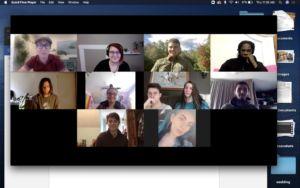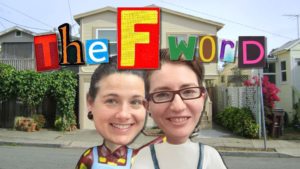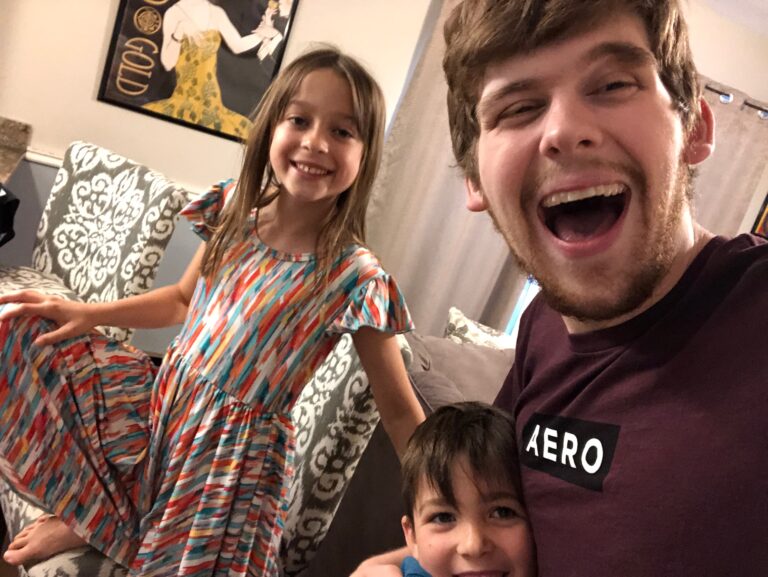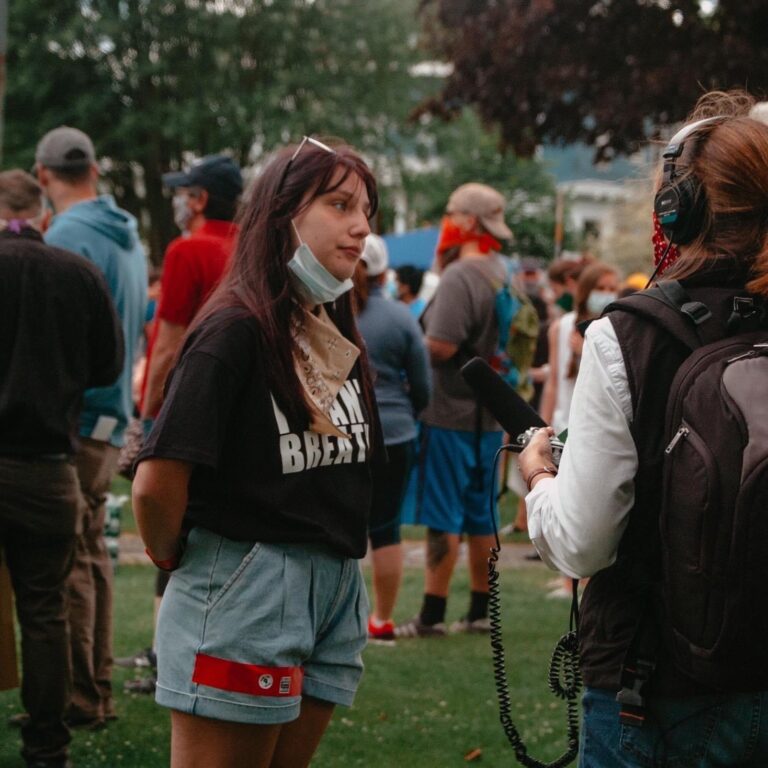The F-Word: Fostering in the U.S.

Going to school remotely has posed many challenges, but, for one lucky Castleton University communication class, it meant having the chance to chat with a filmmaker.
As media and communication professor Samantha Davis-Boyd created the syllabus for her web series class this semester, one of the first tasks for her class was to watch Nico Opper’s web series, The F-Word.
It’s not what you think. This F-word is foster.

“I wanted to start the semester off with some really excellent web series. With this being an online course, I’ve been trying to show things that would get the class thinking, ‘how can I do something similar within my situation?’” Davis-Boyd explained.
Opper shared that they hesitantly chose to embark on this filmed personal-foster-child-family journey with their wife, Kristan Cassidy.
When the California couple began looking into the process of fostering a youth, they were hoping to find an abundance of material online to help them navigate.
They found next to nothing.
This prompted filmmaker, Opper, and Cassidy, to film their daily lives as they tried to enter into the pool of foster parents in the U.S. foster care system.
“We were looking for a roadmap … Once we realized there wasn’t anything out there, we started thinking, if we are going to tell our story ‘what is the most tangible way that people will be able to take that in,’” Cassidy said.
The film tells the story of the process it took to welcome 4-year-old “Jay” into their home and their lives. Opper talked about how the only reason they were able to sit down together for the class was because Jay was at Forest School, an outdoor school near their home.
And now, looking back at the project, Opper said she’s happy they did it.
“The greatest reward has been all the potential foster parents that we’ve heard from that are like ‘this was the thing that I needed that helped me make the decision’ that’s been a really big deal for us,” she said.
Opper ended the meeting by suggesting student-made films can often be more impactful than those professionally produced.
“The films have turned out so well. There’s so much intimacy in physically turning the camera on yourself or your family,” Opper said. “I almost feel like they turn out better than they would have in the traditional, professional way.”






